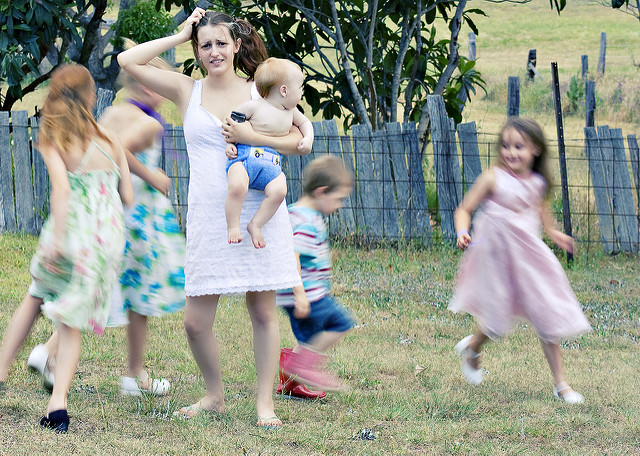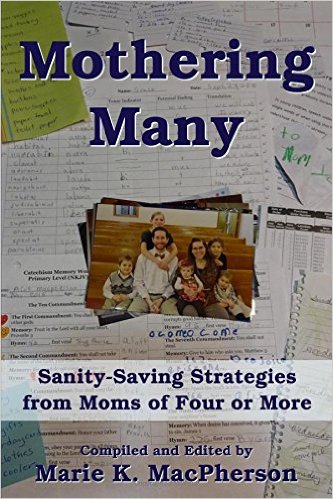Katie’s Bookshelf- Review of Scarlet Virgins: When Sex Replaces Salvation
By Ellie Corrow
The sexual revolution brought many challenges and questions to Christians and social conservatives who saw the dangers in seemingly rampant hedonism, but felt unequipped to address it within their families. Stepping in to fill this breach was a bevy of books and programs such as True Love Waits, Silver Ring Thing, and I Kissed Dating Goodbye, which gained widespread largely uncritical acceptance across the breadth of conservative Christian denominations. The sexual purity movement, as it is collectively known, and its accompanying educational materials, have since become something of a roadmap for concerned parents and youth leaders attempting to guide children through the modern wasteland of sexual ethics. Should the sexual purity movement have such uncritical acceptance? What are the long term effects of its philosophy regarding sex? Is it theologically problematic? These are the sorts of questions Rebecca Lemke seeks to answer in her book, Scarlet Virgins: When Sex Replaces Salvation. In her critique, Lemke wields both her experiences as a disciple of sexual purity, and a clear theological lens. She does not ask her readers to eschew traditional Christian values regarding sex, or discard chastity, instead she suggests that much in the purity movement is often at odds with those exact values we wish to instill in our children.
The sexual purity movement amplifies and distorts classic Christian teaching on chastity, instead moving into a works-based righteousness which explicitly teaches that a person’s purity is defined by her ability to abstain from sexual sin. This purity project equates purity with not just virginity but all manner of sexual purity—from physical modesty, to passing thoughts, to innocent childhood crushes. In this framework, one is either pure or impure, and once someone is impure there is no recovering of that purity. This made it necessary to create a whole series of rules and regulations, all designed to guard everyone’s “purity,” eventually making it impossible for dating couples to share a private conversation, never mind any expression of physical affection. This sexual purity teaching has gained such widespread acceptance that often today the word purity is used in Christian circles as simple shorthand for one’s adherence to the sixth commandment. This should raise flags for Christians who see purity as a gift given to us poor, miserable sinners as we are washed white in the blood of the Lamb. Purity is not predicated on the elimination of all manner of sexual sin (as if such a thing were possible), but is rather imputed to us by Christ.
This teaching is not just problematic in its explicit assertion that purity is preserved or lost on the basis of sexual sin alone, as if the sixth commandment were the only one that matters, but also in its failure to teach a healthy view of sex. So much time and energy is spent creating rules to protect single people from the trap of sexual sin, that little thought is given to how this ongoing teaching affects couples once they are married. It is difficult to transition to a healthy sex life with one’s spouse after being told for years that sex was not only dirty, but also a threat to one’s very salvation. Lemke addresses this issue with startling vulnerability as she details her own struggles with forging healthy intimacy with her husband following their marriage.
Instead of treating sexuality as a healthy part of a person’s humanity, finding its correct expression in marriage, sexuality, particularly female sexuality, is weaponized, to use Lemke’s word, standing as a threat to men in its proximity. In the sexual purity mindset, men’s sexual purity is at the mercy of female modesty, as immodesty on the part of a woman may result in anything from impure thoughts to outright sexual assault. How are Christian girls to grow into godly women who trust and respect men when they have been actively told that young men simply cannot control themselves around young women, and female immodesty is ultimately to blame for the sins of men? Transversely, how are young men to grow to respect and value women when they are taught that women can so easily ensnare them in all manner of impurity by their mere presence? In this framework, women are taught to view men as potential predators, one hug or short dress away from attack, and men are taught to view women as temptresses and obstacles to purity. This is a mindset which hardly invites Christians to see each other as children of God, worthy of love, respect, and mercy, instead inviting measurement on the purity scale.
Scarlet Virgins is sharp and unapologetic in its critique of the sexual purity movement, bravely and unabashedly denouncing what was thought to be the silver bullet to our cultural woes. Lemke unpacks in a very simple, straightforward, and heartbreaking way not only the theological failings of this framework, but also the broken lives it leaves in its wake. She shares her personal story of being left with no basic knowledge of her own body and struggles with sex following her marriage, as it was so deeply engrained in her that her body and sex itself were inherently dirty and shameful. She speaks not as some feminist torpedoing chastity as an unnecessary relic of a by-gone era, but rather as a pious Christian woman who asks for a return to biblical chastity. Her voice is one that needs to be heard as she asks us to more openly consider whether in our rush to protect our children from the sexual revolution and its attendant excesses we have unwittingly handed them a serpent instead of a fish.




5 Comments
Debbie
Great arguments! My Evangelical friends mean well, but this article helps me understand why it feels wrong and is so legalistic. On another related topic on what men are taught, I am concerned with clergy sexual abuse and have lived through it. My son is a pastor and in seminary, the extent of his training in this subject was to watch out for seductive women in the congregation!!!
Jenna Parshall
I have just finished the book and I highly recommend it. Legalism is a very cruel and painful road, whether the focus is sexual purity or issues more directly pertaining to one’s salvation. There truly is nothing worse than bad theology. As the author so wisely states, spiritual abuse leads to eternal death and it is of the utmost importance that we as Lutherans take it seriously. Thanks so much for letting me know about this very well-done book.
Brad
As always, Satan can and does use *anything* as an idol in place of Christ. Hurrah to Lemke for pointing this out about the purity movement.
Having said that, and, to my detriment, without reading the book but only on the strength of the above review, may I offer a critique of the critique? I couldn’t help but think that Lemke may be setting up a “straw man” that Josh Harris et al would not recognize. (See https://en.wikipedia.org/wiki/Straw_man.) Lemke herself was adversely affected by her purity discipleship. But was that the intent of the disciplers? How many others can corroborate Lemke’s story?
I do speak as someone with a background not entirely different, perhaps, than Lemke’s. That is, an independent, fundamentalist Baptist one. I *know* what it feels like to be under a harsh, legalistic system. Girls at church had to wear dresses (no pants), and those dresses had to be well below the knee. Guys were forbidden motorcycles–our pastor actually confiscated one of my peers’. And so on and so forth.
Grace
I am a Cradle Roman Catholic woman. As a teenager and early into my college years, I had Ludy and Evert books on my Kindle library. I am still a virgin and I am waiting until I’m married. I liked what they said and it inspired me and made sense given my life at the time. Although I am proud to be a Catholic and have no intention of leaving, Catholic ministry-and its correlating library-have a very highly idealistic agenda, in this subject and other subjects. While it’s completely admirable to strive to be the best version of yourself in every area of your life, you also need an equal focus in your responsibilities, the choices you can make, your human limits, and yes, acceptance in the fact that you don’t have it right all the time, and yet your are God’s beloved child all the same. The ideal image of “waiting on God,” “having faith,” and “holding on to hope” soon lost its effect on me as I grew older and more experienced with life. Being realistic isn’t the same as losing faith. It’s just faith with awareness and acceptance of shortcomings, responsibilities and potential challenges. It’s healthier than just pushing high standards all the time, even if those standards themselves are worth sacrificing for.
Grace
I am a Cradle Roman Catholic woman. As a teenager and early into my college years, I had Ludy and Evert books on my Kindle library. I am still a virgin and I am waiting until I’m married. I liked what they said and it inspired me and made sense given my life at the time. Although I am proud to be a Catholic and have no intention of leaving, Catholic ministry-and its correlating library-have a very highly idealistic agenda, in this subject and other subjects. While it’s completely admirable to strive to be the best version of yourself in every area of your life, you also need an equal focus in your responsibilities, the choices you can make, your human limits, and yes, acceptance in the fact that you don’t have it right all the time, and yet your are God’s beloved child all the same. The ideal image of “waiting on God,” “having faith,” and “holding on to hope” soon lost its effect on me as I grew older and more experienced with life. Being realistic isn’t the same as losing faith. It’s just faith with awareness and acceptance of shortcomings, responsibilities and potential challenges. It’s healthier than just pushing high standards all the time, even if those standards themselves are worth sacrificing for. Although the messages of purity I received during my childhood weren’t as toxic and degrading as the experiences she shared, I still had integrated lies about God and his wishes from the resources I read:
That women jeopardize what a man was made for when she is honest about her romantic feelings towards him (such as telling him or asking him out), and disrupt God’s plan for sexuality and relationships. (Man’s Opinion being pushed as God’s Word and Scripture out of Context) Also that if women DID act and attempt to let the object of their affection know of their affections, they didn’t have faith in God bringing the perfect man to them (Never mind that men are wholly encouraged and applauded for doing the exact. same. thing. to women they like)
That once a guy is sexually aroused, he isn’t satisfied until he tries everything with his current girl. So, in other words, once his desires come, he is incapable of handling himself responsibly until he acts on them. Never mind that one of the reasons we hear about staying sexually pure is that we are stronger than our sexual desires.
That sex was dangerous, a la “fire outside the fireplace that burns everything else up” (my resources strongly emphasized that premarital sex was dangerous, which was better, but still not enough to dissappate the fear or dissuade the unhealthy image.)
That if you lose your virginity before marriage, you’d lose your irreplaceable gift to your spouse, even if you repented and your spouse accepted you anyway.
That Purity Culture is founded on “how far is too far” (Even though my resources themselves said that it was the wrong question to ask in sexual purity, it was still the foundation of the entire Culture, disguised as “honoring God.”)
So this summer, I confidently, but heartbrokenly, removed my Ludy and Evert texts from my Kindle library.
Lemke’s book was the antidote I needed. She recognizes the dangers in being too idealistic, manipulation of scripture and spiritual opinion without disregarding religion as a whole, which is a tragic consequence that is witnessed when we see more church critics saying the same arguments but additionally saying that religion is pointless and holiness is unobtainable. It is the perfect blending of realism, hopefulness, respecting God and his commands, cautiousness of human interference and human and spiritual empowerment. Culture vs Church has become a pendulum of “You can!” to “You mustn’t!” This book is one of the best examples I have ever seen in addressing that conflict and holding onto your hope, sanity and self-worth in the middle of the crossfire. We are holy and human. God will meet us here because he already sacrificed for us. This is the healthiest form of faith I have ever seen, and I am so proud that Lemke is promoting that message, because it’s our very foundation, and therefore, we cannot chose between one or the other. We must bring them together. I have never felt more at home with my faith. There have been others with similar voices, but this book of hers was when I realized that my mindset was not abandoning God’s plan. I hope that I will see more of her material soon.